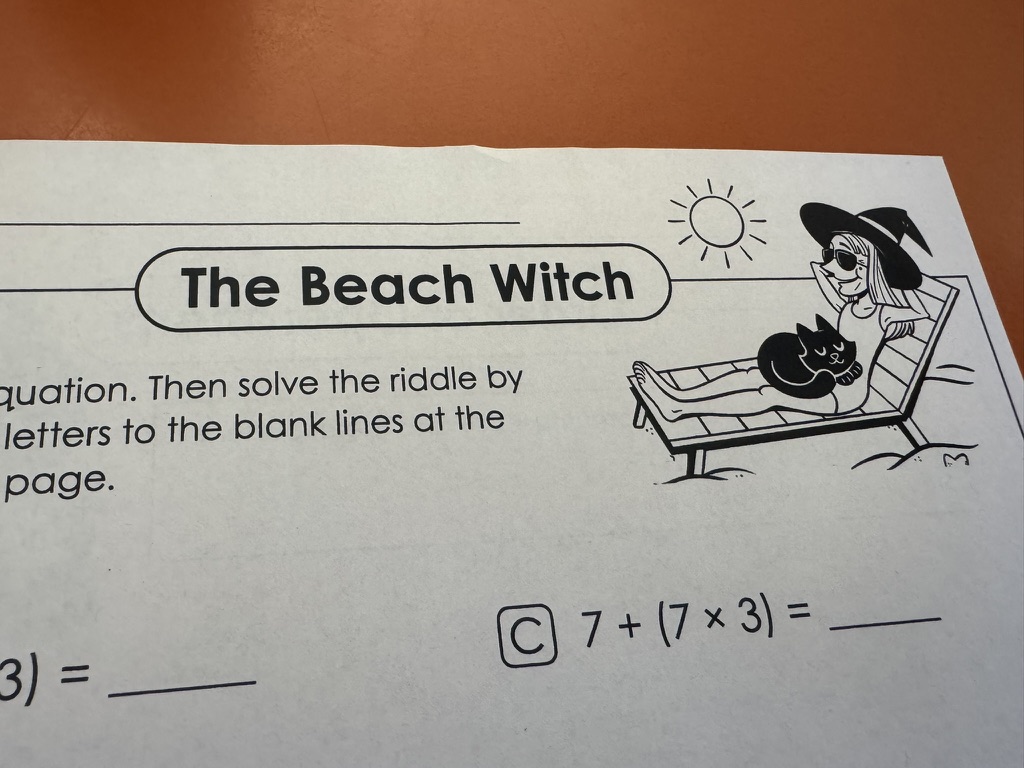A friend of mine recently noted that I was wearing sweatpants out of the house.
“And?” I asked.
“I just would never wear sweatpants in public,” she said. “And I know that most people don’t.”
Getting beyond the questionable validity of my friend’s statement and the veiled insult that her comment implied, I indicated to my friend that:
- I wear sweatpants all the time, particularly during the winter.
- I do not base my clothing choices on the choices of others.
- I haven’t noticed that other people don’t wear sweatpants regularly.
While these second and third points may sound a bit pretentious and unnecessarily highbrow, they were not meant to be. It’s a simple fact that I am not a visual learner. I once dated a school psychologist who needed to practice administering an IQ test and used me as a test subject. When it came to the visual-spatial section of the test, she became angry with me, assuming that my poor performance was due to a lack of attention or a desire to be amusing, when in truth, I was trying my best. I simply cannot perform visual-spatial tasks with any effectiveness. I’m the worst Tetris player on the planet, and Jenga is a joke to me. Without looking down, I can’t even tell you what pair of pants I’m wearing at this moment, because my choice from earlier this morning did not imprint on my memory.
I checked. I’m wearing sweatpants again.
In contrast, I am an exceptionally strong auditory learner. I remember everything that I hear and can often repeat conversations word for word. This makes me an especially effective debater since I will often find ways to use my opponents’ own words against them. There have been times when I have been sitting on the couch, listening to an audiobook and watching television at the same time, thus baffling my wife. My ability to process auditory information is especially strong.
All of which leads me to my writing. As with any writer, certain aspects of the craft are easier for me than others, and some are much more difficult. I think that I’m especially effective at noticing and capturing the subtle humor of a situation, and I seem to be able to inhabit a character well, bringing that character to life.
My wife pointed out that I also bring my innate desire to problem-solve to my work. In Something Missing, for example, Martin is faced with a number of perplexing situations, and for each one of these dilemmas, the problem existed well before the solution. In other words, I tend to create problems for my characters and then force myself to find solutions to these problems, without any idea of how I might solve them beforehand and without altering the problem from its original inception.
But with these strengths come certain weaknesses, and my greatest weakness relates to my lack of visual memory. I have a remarkably difficult time describing characters, and moreover, I have no interest in describing them physically at all. When I first submitted the manuscript of Something Missing to my agent, she pointed out that there were no physical descriptions of any of my characters at all. Not one solitary word on a character’s height, eye color, wardrobe, or even age. Not only did I fail to notice this, but working on the physical description was the most difficult part of the revision process for me. I remember thinking, “Eye color? Hair color? What else is there?” Having never noticed these things before, I had nothing with which to work.
Though my ability to write physical descriptions has improved over the past couple of years, it’s still one of my greatest challenges in working on the new book. While many aspects of writing come naturally to me, this does not. My agent, Taryn, recently suggested that I read Zadie Smith’s White Teeth, which I have begun reading, and it has helped. In the words of Taryn, who was providing me with some notes on the first half of the new book:
“Good opportunity to describe Freckles more here. Descriptions do seem to be a weak point, what little we get is sort of…dare I say…boring. Read Zadie Smith’s WHITE TEETH, she is the master at character description (that’s all that novel is!).”
It’s good to have an agent who is willing to say that your writing is at times, “dare I say… boring.” And I mean this with the greatest of sincerity.
Along with reading White Teeth (Taryn also suggested Special Topics in Calamity Physics by Marisha Pessl), I have begun making a concerted effort to notice physical descriptions more, particularly when out in public. Whenever I notice an interesting physical descriptor on a person, I record the observation for later use. Just yesterday, I noticed a man in Lenscrafters with an especially wrinkled forehead. I made a note of this, and you are likely to meet someone with this unfortunate cranial disposition in a future book. I recall a day early on in my physical description search when I noticed that people’s eyebrows were different. I know it sounds silly, but this was a revelation for me.
So when you’re reading Something Missing and come across the physical description of a character, please know that a great deal of effort went into those sentences and that they still may be, at times, dare I say a little boring. But I’m working on it, looking for ways to improve, and am always open to suggestions, as painfully honest as they may be.






